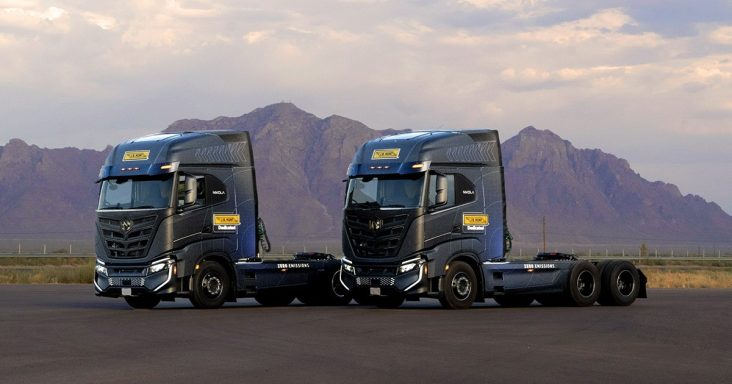J.B. Hunt still plans to use Nikola trucks
by December 27, 2023 7:02 am 4,085 views

J.B. Hunt Transport Services Inc. will incorporate Nikola zero-emission trucks into its fleet when they’re available and meet its safety standards, a company executive said recently. On Nov. 2, Nikola released additional information on the August recall of its battery-electric trucks, which are expected to help J.B. Hunt achieve its carbon emissions goal.
Craig Harper, chief sustainability officer for J.B. Hunt, said, “Adopting alternative-powered equipment is only one of three key areas for the company to reach its carbon emission intensity reduction target of 32% by 2034. In addition to zero-emission vehicles, we remain focused on our long-term efforts to expand the use of biogenic fuels and improve fuel economy, the two additional components essential to achieving the company’s goal.”
The month after J.B. Hunt announced the purchase of 13 Nikola trucks, the Phoenix-based vehicle manufacturer recalled 209 of the battery-electric trucks because of a coolant leak that could cause a battery fire.
The new information shows the issue wasn’t limited to the coolant manifold. “As a result, our team has decided to replace the Romeo packs on existing customer battery-electric trucks with an alternative solution.” Nikola expects to re-engineer, validate and retrofit the previously sold trucks with an “alternative battery pack solution.” The company plans to start delivering battery-electric trucks to customers again in the first quarter of 2024.
“J.B. Hunt will incorporate the Nikola zero-emission vehicles into our fleet when they are available and have met the company’s high level of safety standards,” Harper said.
New technology and infrastructure development are also important for J.B. Hunt to meet its emissions goal. “This includes ongoing enhancements to commercial motor vehicles, charging and refueling infrastructure, expanding capacity on the electrical grid, increasing the availability of biogenic fuels and the incorporation of more energy resources with lower carbon intensity,” Harper said.
He added that “converting highway shipments to intermodal is the most effective solution for cutting carbon emissions.”
